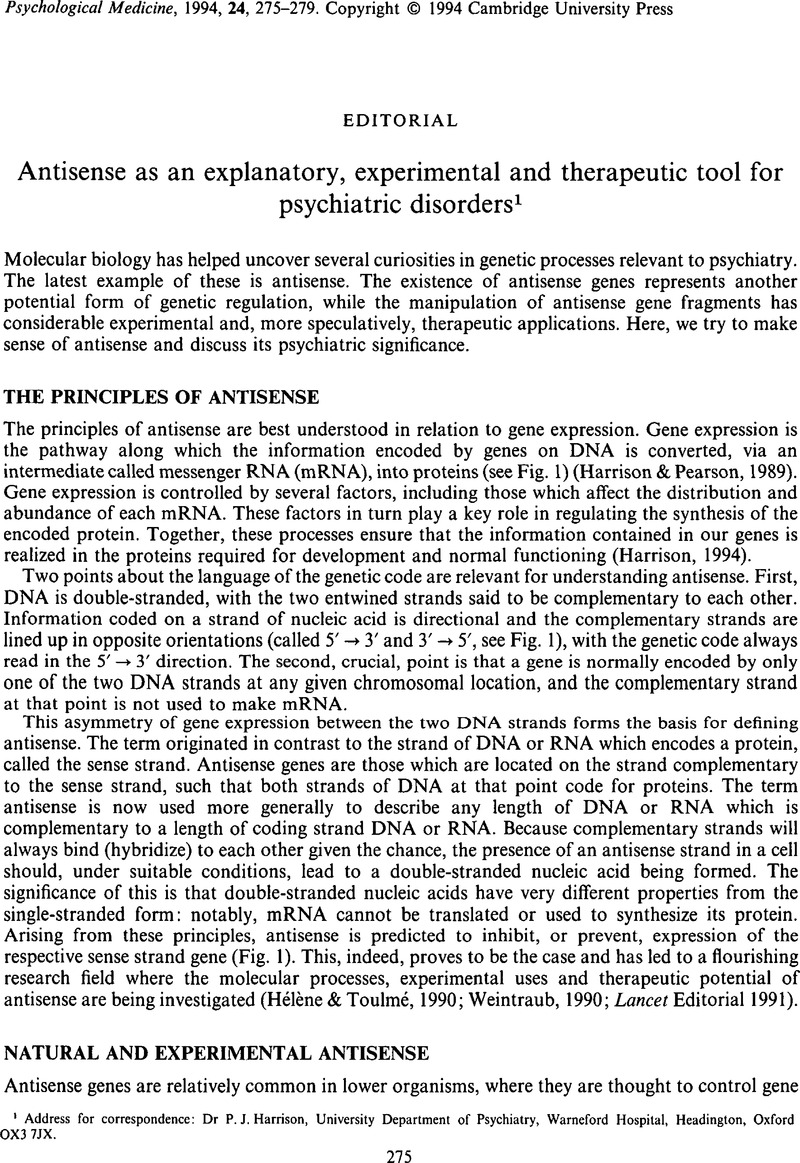Crossref Citations
This article has been cited by the following publications. This list is generated based on data provided by Crossref.
Le Corre, Sylvie M.
Burnet, Philip W.J.
Meller, Robert
Sharp, Trevor
and
Harrison, Paul J.
1997.
Critical issues in the antisense inhibition of brain gene expression in vivo: Experiences targetting the 5-HT1A receptor.
Neurochemistry International,
Vol. 31,
Issue. 3,
p.
349.
Weiss, Benjamin
Davidkova, Genoveva
and
Zhang, Sui-Po
1997.
Antisense strategies in neurobiology.
Neurochemistry International,
Vol. 31,
Issue. 3,
p.
321.
Lu, Lingen
and
Ordway, Gregory A
1997.
Reduced expression of α2C-adrenoceptors in rat striatum following antisense oligodeoxynucleotide infusion.
Molecular Brain Research,
Vol. 47,
Issue. 1-2,
p.
267.



